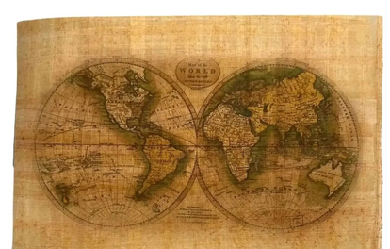Songs for a Colored Singer
I
A washing hangs upon the line,
but it’s not mine.
None of the things that I can see
belong to me.
The neighbors got a radio with an aerial;
we got a little portable.
They got a lot of closet space;
we got a suitcase.
I say, “Le Roy, just how much are we owing?
Something I can’t comprehend,
the more we got the more we spend....”
He only answers, “Let’s get going.”
Le Roy, you’re earning too much money now.
I sit and look at our backyard
and find it very hard.
What have we got for all his dollars and cents?
—A pile of bottles by the fence.
He’s faithful and he’s kind
but he sure has an inquiring mind.
He’s seen a lot; he’s bound to see the rest,
and if I protest
Le Roy answers with a frown,
“Darling, when I earns I spends.
The world is wide; it still extends....
I’m going to get a job in the next town.”
Le Roy, you’re earning too much money now.
II
The time has come to call a halt;
and so it ends.
He’s gone off with his other friends.
He needn’t try to make amends,
this occasion’s all his fault.
Through rain and dark I see his face
across the street at Flossie’s place.
He’s drinking in the warm pink glow
to th’ accompaniment of the piccolo.
The time has come to call a halt.
I met him walking with Varella
and hit him twice with my umbrella.
Perhaps that occasion was my fault,
but the time has come to call a halt.
Go drink your wine and go get tight.
Let the piccolo play.
I’m sick of all your fussing anyway.
Now I’m pursuing my own way.
I’m leaving on the bus tonight.
Far down the highway wet and black
I’ll ride and ride and not come back.
I’m going to go and take the bus
and find someone monogamous.
The time has come to call a halt.
I’ve borrowed fifteen dollars fare
and it will take me anywhere.
For this occasion’s all his fault.
The time has come to call a halt.
III
Lullaby.
Adult and child
sink to their rest.
At sea the big ship sinks and dies,
lead in its breast.
Lullaby.
Let mations rage,
let nations fall.
The shadow of the crib makes an enormous cage
upon the wall.
Lullaby.
Sleep on and on,
war’s over soon.
Drop the silly, harmless toy,
pick up the moon.
Lullaby.
If they should say
you have no sense,
don’t you mind them; it won’t make
much difference.
Lullaby.
Adult and child
sink to their rest.
At sea the big ship sinks and dies,
lead in its breast.
IV
What’s that shining in the leaves,
the shadowy leaves,
like tears when somebody grieves,
shining, shining in the leaves?
Is it dew or is it tears,
dew or tears,
hanging there for years and years
like a heavy dew of tears?
Then that dew begins to fall,
roll down and fall,
Maybe it’s not tears at all.
See it, see it roll and fall.
Hear it falling on the ground,
hear, all around.
That is not a tearful sound,
beating, beating on the ground.
See it lying there like seeds,
like black seeds.
see it taking root like weeds,
faster, faster than the weeds,
all the shining seeds take root,
conspiring root,
and what curious flower or fruit
will grow from that conspiring root?
fruit or flower? It is a face.
Yes, a face.
In that dark and dreary place
each seed grows into a face.
Like an army in a dream
the faces seem,
darker, darker, like a dream.
They’re too real to be a dream.






